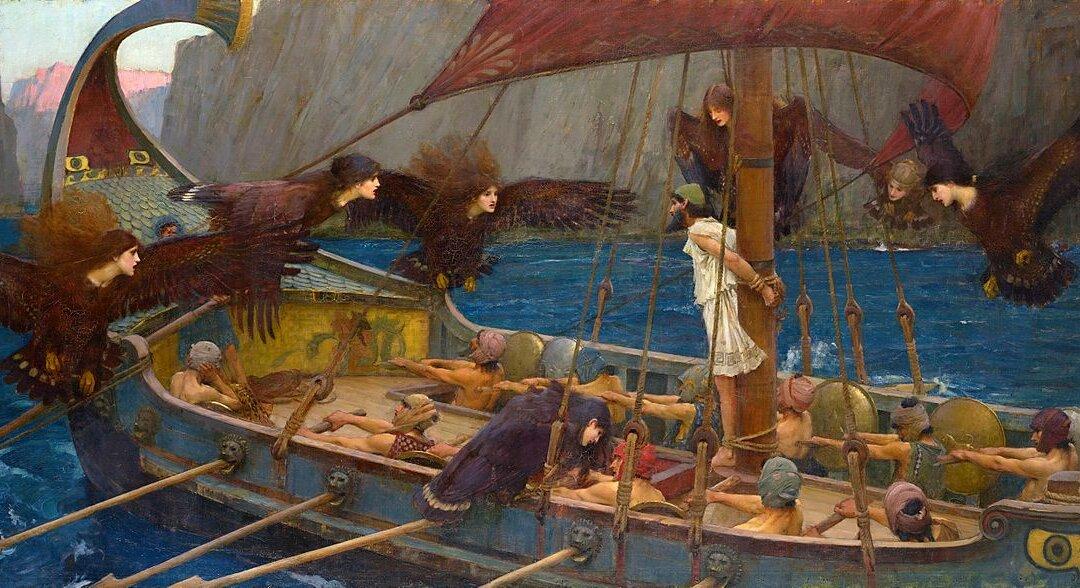We have seen Odysseus struggle with what might be called the lethargy of the body on the island of the Lotus-Eaters, type Nines; then at type Eight, the rage or lust of the body for sheer power with the Cyclops. Then, at Seven, the mind becomes more important than the body, as the optimistic Seven type imagines and craves boundless and beautiful futures. At Six, though, that switches to mental paranoia, mistrust, and fear; and at Five there is another mind problem in that the Five type can never know enough, and can end up avariciously hoarding knowledge.
Now as Odysseus continues his journey home—back to find his own true soul—and directed by the very precise instructions given by his lover, the goddess Circe, he must move away from what is in the mind to address what is in the heart, in the deepest emotional core of himself.






